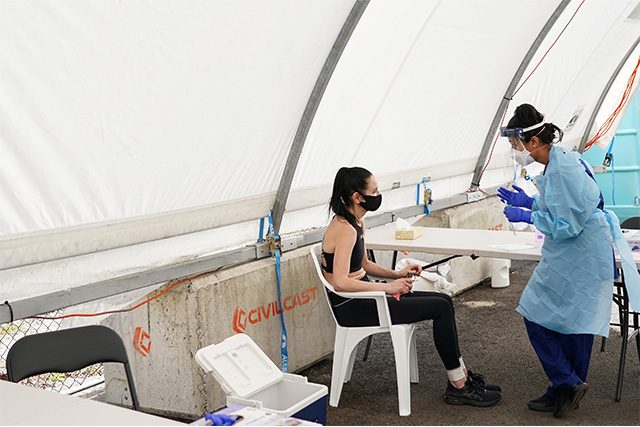
SYDNEY — Australian doctors on Thursday warned the country’s hospitals are not ready to cope with the government’s reopening plans, even with higher vaccination rates, as some states prepare to move from a virus suppression strategy to living with COVID-19.
The Australian Medical Association (AMA) said the health system was in danger of being locked into a “permanent cycle of crisis” and has called for new modelling to check if staffing levels in hospitals can withstand an expected surge in cases when lockdown rules ease.
“If you have opened up and you haven’t looked at the safety nets or the life rafts that we’ve got, we might end up actually trying to push more people on the life rafts and capsizing them,” AMA Vice President Chris Moy told broadcaster ABC.
Australia in July unveiled a four-stage plan back to greater freedoms when the country reaches 70%-80% vaccination levels and urged states to focus on limiting the number of deaths and hospitalizations from the current COVID-zero strategy.
Virus-free Queensland and Western Australia have said they may not stick to the reopening plans as the agreement was finalized when cases in New South Wales were much lower. New infections are hovering around record numbers, with the state recording over 1,000 cases a day for the past five days.
Soaring cases forced Victoria on Wednesday to join New South Wales in abandoning a COVID-zero target as both states now see vaccinations as a pathway to freedom after failing to quell an outbreak of the Delta variant even after a weeks-long lockdown.
New cases in Victoria jumped to 176 on Thursday from 120 a day earlier.
Australia has largely lived in COVID-zero for much of the pandemic, recording just 1,012 deaths in total and just over 55,000 cases. But a slow vaccination rollout has left it vulnerable to more infections and hospitalizations.
So far, only about 36% of people above 16 have been fully vaccinated, well below most comparable countries.
—Reporting by Renju Jose; editing by Richard Pullin









